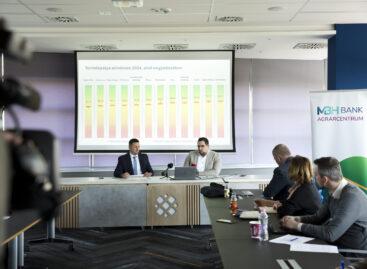European Commission: producers can deviate from the rules on fallowing for one year
In 2024, EU agricultural producers can deviate from the rules of the common agricultural policy (CAP), which oblige them to leave certain agricultural areas fallow, i.e. fallow, the European Commission announced on Tuesday.

(Photo: Pixabay)
According to the statement from Brussels, the EU commission adopted the regulation providing partial exemption to address the income concerns of agricultural producers. They reminded: several member states requested a greater degree of flexibility in order to be able to respond more effectively to the challenges faced by EU agricultural producers. Those farmers who, instead of leaving 4 percent of their arable land fallow or unused, also grow nitrogen-fixing crops, such as lentils, peas or horse beans, or so-called intermediate crops on 4 percent of their arable land, are considered to fulfill the relevant requirement.
The announcement detailed: intercrops are crops that are grown between two main crops and can be used as fodder or green manure
The use of nitrogen-fixing crops and catch crops has many environmental benefits for soil health, including soil biodiversity and reduced nutrient leaching. In order to maintain KAP’s environmental protection efforts, plants must be grown without pesticides, they wrote. Those who wish can continue to comply with the requirement by leaving the area fallow or unused, they said. Member States that wish to apply the deviation at national level must notify the European Commission within 15 days, so that agricultural producers receive the necessary information as soon as possible. The decree creates an appropriate balance between, on the one hand, the adequate support of agricultural producers struggling with crises, and, on the other hand, the protection of biological diversity and soil quality, they emphasized. The decree enters into force on February 14 and can be applied retroactively for one year, i.e. until December 31, 2024.
MTI
Related news
(HU) MBH AgrárTrend Index: stabilizálódtak a magyar élelmiszer-gazdaság kilátásai
The assessment of the situation of the actors of the…
Read more >The EP approved the review of the EU’s common agricultural policy
The revision of the common agricultural policy (CAP) was approved…
Read more >Agrometeorology: rainfall was good for plant development
The cool weather of the past few days stopped the…
Read more >Related news
Grilling cheese didn’t go up in smoke
The average price of grilling cheese is much higher (nearly…
Read more >What do shoppers say about the new retail tools?
At the beginning of the year, Consumer Panel Hungary GfK–YouGov asked panel…
Read more >Special foods ranking: 1. Diabetic, 2. Low-carb, 3. Lactose-free
Different special diets and foods are frequently discussed, and it…
Read more >







